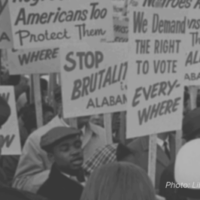Activists are pushing to end policies that allow employers to pay some workers less than the $7.25 federal minimum wage.
Call it the luck of location. If you happen to live in Alaska, California, Minnesota, Montana, Nevada, Oregon or Washington State, and work in an occupation that relies on tips from customers, you must be paid your state’s full minimum wage for every hour you work. But if you’re a tipped worker in one of 15 (mostly Southern) states, you earn just $2.13 an hour — a subminimum rate that has been in place since 1991. The remaining states — 28 and Washington, D.C. — pay workers more than $2.13 but less than the federal $7.25 hourly minimum.
And the variations don’t end here. For example, New York State ended the subminimum wage for aestheticians, car wash workers, dog groomers, door persons, hairdressers, manicurists, tour guides, tow truck drivers and valet parking attendants in 2020, but left the subminimum in place for wait staff and bartenders.
What’s more, it’s not just tipped workers who are paid lawful, but outrageously low, subminimum wages. Disabled workers employed in a “sheltered workshop,” vocational education pupils, agricultural workers, prisoners, and full-time students employed in retail or service businesses can be paid less than minimum wage, thanks to a provision in 1938’s Fair Labor Standards Act.
But here, too, there are some inconsistencies: To wit, employers can pay workers under age 20 a subminimum wage of $4.25 an hour for no more than 90 calendar days after they begin the job.
Other employment categories are unrestricted, meaning that disabled workers in much of the country can work for pennies an hour forever unless they live in one of the 14 states that have phased out the subminimum for disabled workers.
If you’re confused, you’re not alone, and labor activists are working hard to end the geographic diversity, raise wages for all workers and build worker power.
Before we parse this, here’s some history regarding how this hodge-podge came to be. According to the Center for American Progress, tipping became common after Emancipation, allowing businesses to exploit Black workers through substandard pay. In many cases, tips replaced fixed wages and it was not until 1966 that the Fair Labor Standards Act was amended to require a tiny subminimum wage for workers in restaurants, bars, hotels, and other typically tipped occupations.



